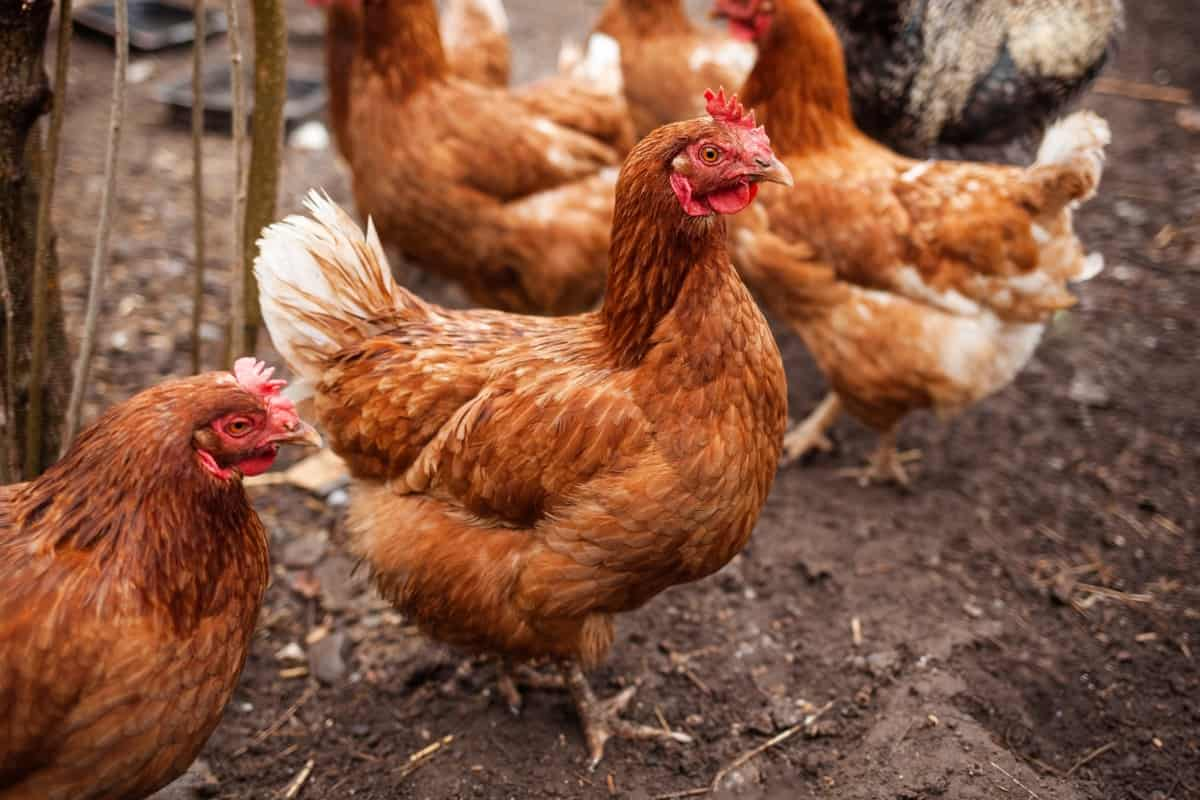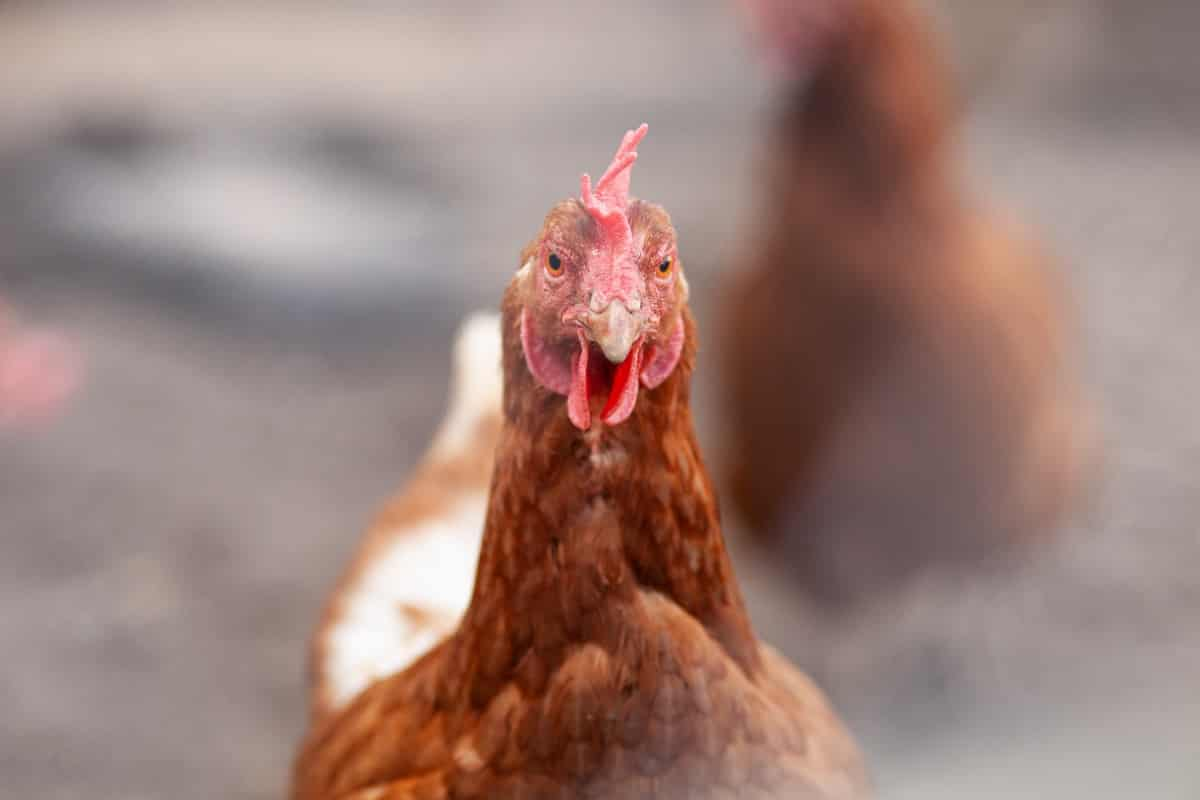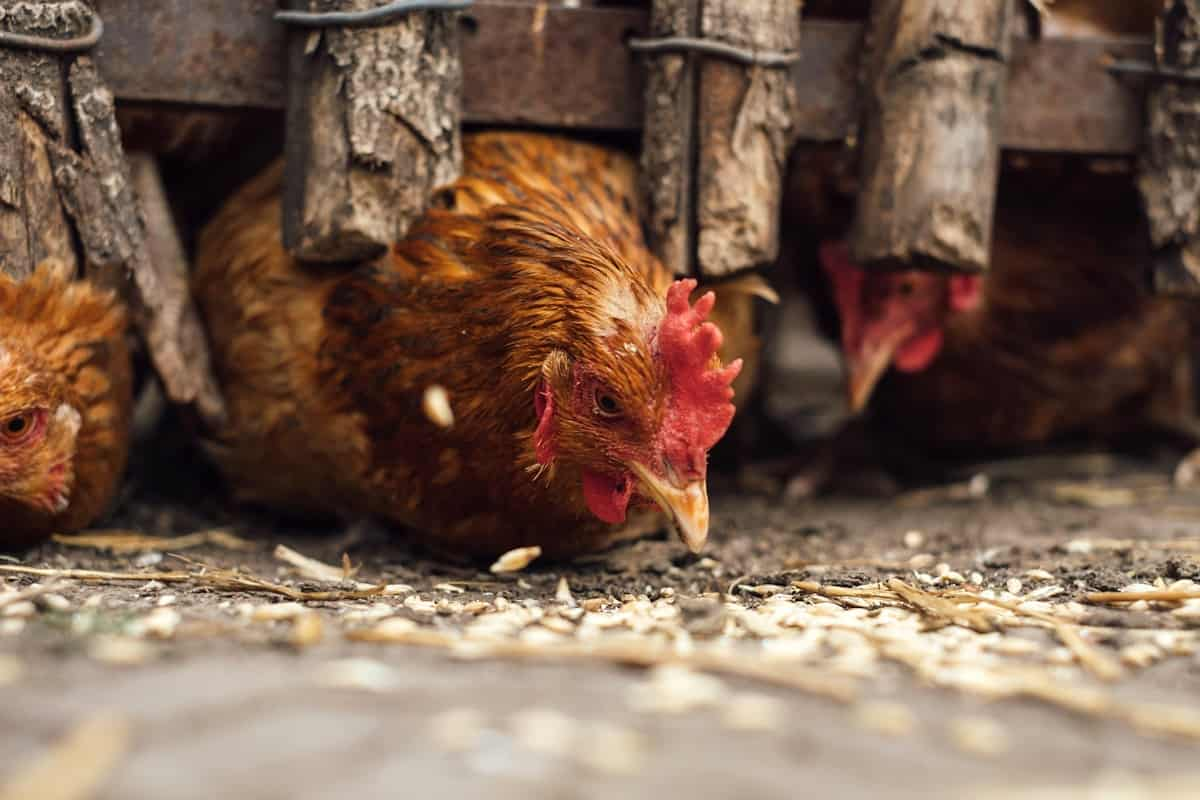The Red Star has been considered a perfect chicken for backyard owners because they are dual-purpose and have a high yield of meat and eggs. The rise of the Red Star chicken cross-breed began in the United States in the mid-1900s when the perception of cross-breeding started to change. It is being produced by crossing a Rhode Island Red or a New Hampshire rooster with a White Plymouth Rock, a Rhode Island White, a Silver Laced Wyandotte, or a Delaware hen.

Red Star Chicken Behaviour
- The Red Star chicken is known for being active and alert. These birds are always on the move, scratching and pecking at the ground for insects and other tasty treats. They have a curious nature and will readily explore their surroundings.
- The Red Star chickens are also social creatures, often interacting with each other and establishing a pecking order within their flock. While they generally get along well with other chickens, there may be occasional squabbles over food or territory.
- Another interesting aspect of their behavior is that they tend to be quite vocal. You’ll often hear them clucking softly as they go about their daily activities. This can add a lively soundtrack to your backyard. It’s important to note that each chicken has its unique personality within the breed.
- The Red Star is known for being docile and friendly towards humans. They enjoy human interaction and can even become quite affectionate with their owners. Furthermore, their docile nature makes them easily trainable if you wish to teach them tricks or have them participate in poultry shows or competitions.
Information About Red Star Breed
| Breed Name | Red Star Chicken |
| Egg Color | Brown |
| Egg Size | Large |
| Comb Type | Single |
| Lifespan | 5-8 years |
| Skin Type | Feathers |
| Egg Production | 280-300 eggs per year |
| Weight | At maturity” Red Star males average 8 lbs. Red Star females average 6 lbs. |
Hardiness of the Red Star Chicken
- These birds are known for their ability to withstand various weather conditions and adapt to different environments. Whether it’s a scorching summer or a freezing winter, the Red Stars can thrive with minimal assistance.
- One reason for their hardiness is their genetic makeup. The cross-breeding process has resulted in chickens that have inherited strong genes from multiple breeds, making them resilient and sturdy. They are built to endure both extreme heat and cold temperatures without compromising their health or productivity.
- Moreover, the Red Stars’ robust immune system plays a significant role in their ability to resist diseases and infections. With proper care and nutrition, these chickens rarely fall ill, which means less worry for backyard owners.
The Temperament of the Red Star Chicken
- These birds are known to be friendly, making them a great choice for backyard owners looking for a pet-like experience with their feathered friends.
- Red Stars are generally calm and easygoing, which makes them well-suited for families with children or other pets. They are not aggressive towards humans or animals and tend to get along well with their flock.
- These chickens have a curious nature and enjoy exploring their surroundings.
- Despite their gentle disposition, Red Stars can still be somewhat independent. They enjoy free-ranging but do well in confinement if given enough space to move around comfortably.
In case you missed it: How to Identify, Treat, and Prevent Chicken Lice

Red Star Chicken Egg Production
- The Red Star chicken is a top breed for egg production. With an impressive yield of 280-300 eggs annually, these hens will keep you well-stocked with fresh and delicious eggs.
- Their ability to lay such a high number of eggs is due to their strong genetics and selective breeding. The cross-breeding process in creating the Red Star has resulted in a hen that excels in meat and egg production. This makes them perfect for those looking for dual-purpose chickens.
Red Star Chicken Weight
These birds are no lightweights, with males averaging 8 pounds and females reaching 6 pounds when they reach maturity. The weight of the Red Star chickens is one of their distinguishing features. Their larger size also means more meat for those who raise them for that purpose. This makes them ideal for supplementing their egg production with some tasty poultry.
Feeding and Care for the Red Star Chicken
- Feeding and caring for your Red Star chickens is essential to ensure their health and productivity. These birds have specific dietary needs that must be met to thrive.
- Provide your Red Stars with high-quality chicken feed specifically formulated for laying hens. This feed should contain the right balance of protein, vitamins, and minerals to support egg production.
- In addition to their regular feed, offer your Red Stars treats such as fruits, vegetables, and grains. Not only will these treats provide variety in their diet, but they also help keep the chickens entertained.
- Fresh water should always be available for your flock. Make sure to clean and refill their waterers regularly to prevent contamination.
- Caring for your Red Star chickens goes beyond just feeding them properly. Regularly check on their living conditions and make any necessary adjustments. Provide a clean coop with plenty of space for each bird to move around comfortably.
- Regularly inspect your birds for signs of illness or injury. If you notice anything unusual, consult a veterinarian specializing in poultry health.
Tips for Raising Healthy Red Star Chickens
- Provide a Nutritious Diet: A well-balanced diet is crucial for the health and productivity of your Red Star chickens. Ensure they have a high-quality feed that contains essential nutrients.
- Keep Clean Water Available: Fresh and clean water should always be available for your chickens. Regularly change their water to prevent the growth of harmful bacteria or algae.
- Maintain a Clean Environment: A clean coop is essential for keeping your Red Stars healthy. Regularly remove droppings, replace bedding material, and disinfect the coop to minimize the risk of diseases.
- Regular Health Check-ups: Schedule regular visits with a veterinarian specializing in poultry to ensure your chickens are healthy. They can provide vaccinations if necessary and advise you on any potential issues.
- Protect from Predators: Install secure fencing around the chicken coop and run area to protect your Red Stars from predators like foxes or raccoons. Consider using motion-activated lights or alarms as an additional deterrent.
- Provide Adequate Space: Allow enough space in the coop for each chicken to move comfortably without feeling crowded. Overcrowding can lead to stress, aggression, and increased disease transmission.
- Provide Ample Ventilation: Proper ventilation helps maintain good air quality inside the coop by reducing moisture levels and preventing respiratory problems among your flock.
Health Care Tips for Red Star Chickens
- Make sure they have access to clean water at all times. Chickens need plenty of hydration to stay healthy and lay those delicious eggs.
- Next, please provide them with a balanced diet high in protein. This can come from commercial chicken feed or by supplementing their diet with mealworms or kitchen scraps.
- Regularly inspect your flock for any signs of illness or injury. Watch for sneezing, coughing, lethargy, changes in appetite, or abnormal droppings. If you notice anything concerning, consult a veterinarian who specializes in poultry.
- Keep the chicken coop clean and well-ventilated to prevent the spread of disease. Regularly remove soiled bedding and replace it with fresh straw or wood shavings.
- Give your Red Stars plenty of space to roam and scratch around outside. Fresh air and exercise are important for their overall health and happiness.
In case you missed it: The Best Chicken Breeds in the Philippines

Conclusion
The Red Star chicken has become a top choice for backyard owners due to its dual-purpose capabilities and impressive egg-laying abilities. These beautiful birds offer many benefits, making them an ideal addition to any flock. These birds are incredibly resilient and adaptable to different climates and environments.
- Feed Your Flock for Less: Top 10 Tips to Save on Chicken Feed
- Ultimate Guide to Ossabaw Island Hog: Breeding, Raising, Diet, and Care
- Hatching Answers: The Top 10 Reasons Your Chickens Aren’t Laying Eggs
- Eggs and Economics: Breaking Down the Cost of Raising Backyard Chickens
- Defend Your Greens: Proven Methods to Keep Iguanas Out of Your Garden
- Ultimate Guide to Cinnamon Queen Chicken: A Comprehensive Guide for Beginners
- Ultimate Guide to California Tan Chicken: Breeding, Raising, Diet, Egg-Production and Care
- Ultimate Guide to Marsh Daisy Chicken: Breeding, Raising, Diet, and Care
- 10 Types of Chicken Farming Businesses You Can Start for Profits